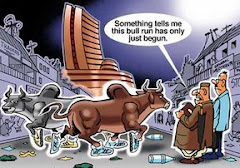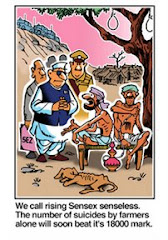
With Wall Street caught in a credit crisis that has captured world headlines, the forces assailing the US economy are now spreading beyond areas hit hardest by the boom-turned-bust in real estate like California, Florida and Nevada. Now, the downturn is seeping into new parts of the country, to communities that seemed insulated only months ago.
The broadening of the slowdown, the plunge in home prices and near-paralysis in the financial system are fueling worries that what most economists now see as an inevitable recession could end up being especially painful.
Indeed, some economists fear it will last longer and inflict more bite on workers and businesses than the last two recessions, which gripped the economy in 2001 and for eight months straddling 1990 and 1991. This time, these experts say, a recession in which economic activity falls over a sustained period and joblessness rises across the board could even persist into next year.
“It’s not hard to construct very dark scenarios, primarily because the financial system is in disarray, and it’s not clear how to get it all back together again,” said Mark Zandi, chief economist at Moody’s Economy.com.
To be sure, there are many places where talk of recession still seems as out of place as a diner trying to score a table at a trendy Los Angeles restaurant without reservations on a Saturday night. First-class cabins of airplanes are jammed. So are spas, cigar bars and children’s clothing boutiques selling upscale dresses.
Unemployment, meanwhile, still remains at a relatively low 4.8 percent.
But even after the Federal Reserve’s extraordinary efforts to prevent the collapse of Bear Stearns from spreading to other financial institutions, the danger still lurks that banks will grow even tighter with their funds and will starve the economy of capital.
“If lenders and debtors don’t trust each other, that causes a power outage,” said Michael T. Darda, chief economist at MKM Partners. “And that’s where we are now.” Until recently, Mr. Darda was among those still holding to the notion that the economy could generate enough jobs to keep the economy rolling. But the private sector has shed jobs for three consecutive months. Mr. Darda is now worried.
“We’ll be lucky to make it out of this without something that looks like a recession,” he said.
On Thursday, FedEx , whose global courier business tends to rise and fall with swings in the economy, reported that its earnings actually dropped in the United States and warned that in future months it expected to fall well short of its customary double-digit annualized profit gains.
“We just aren’t going to be able to do that,” Alan Graf, FedEx’s chief financial officer, said in a call with Wall Street analysts. “The crystal ball for everybody is very cloudy here.”
For now, there are still pockets of prosperity across the country. Farmers are enjoying record crop prices as the adoption of ethanol makes corn a way to fill gas tanks, and as rising incomes in China, India and elsewhere spell growing demand for meat. The weak dollar is helping exporters and retailers that cater to foreign tourists.
Eastern Mountain Sports, the outdoor clothing dealer, says sales increased by one-third this month compared with the year before at its store in SoHo. “A lot of that is Europeans coming over,” said Will Manzer, the company’s president.
With oil selling at approximately $100 a barrel, the Taste of Texas Steakhouse in Houston — a popular spot for events held by BP, Shell and Exxon Mobil — is reveling in days of plenty.
Even those areas suffering the downturn can bank on considerable help on the way, economists say, as the impact of lowered interest rates kicks in later this year, encouraging businesses to expand and hire. Tax rebate checks to be mailed out by the government this spring may lubricate spending as well.
Despite fears that the odds for a particularly severe recession have now increased, Mr. Zandi still subscribes to the consensus that the economy will shrink only modestly during the first half of 2008, then resume expanding as more money washes through the system. That would limit the damage to the type of relatively modest recession that hit the economy earlier this decade.
For the country as a whole, recent data shows that the economy is deteriorating at an accelerating rate. From September to January, average home prices fell 6 percent compared with a year earlier. Consumer confidence has been plummeting. The private sector shed 26,000 jobs in January and 101,000 in February, while those out of work have stayed jobless longer, according to the Labor Department.
Now, the broader discomfort is filtering into cities and towns that only recently seemed beyond reach.











